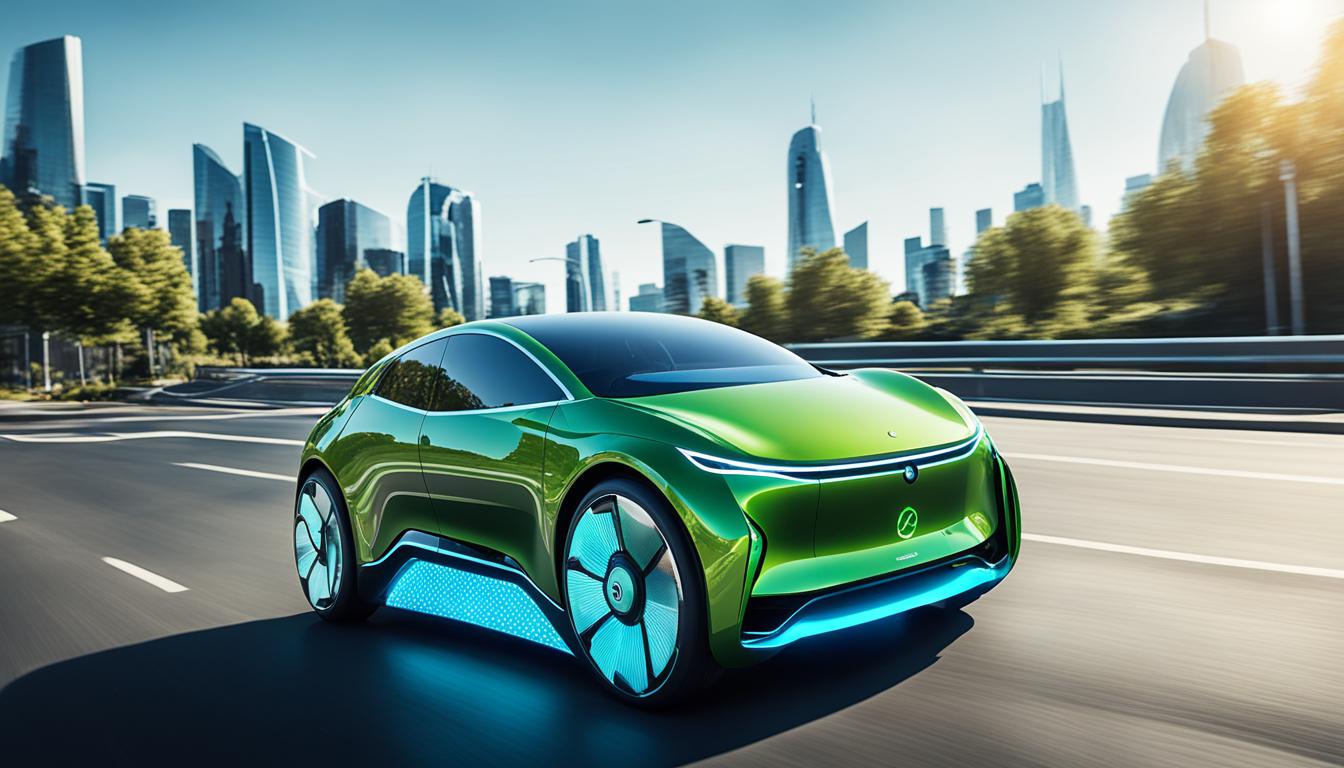
The Latest Car Innovations Transforming the Industry
Car innovations are revolutionizing the automotive industry, driving major transformations and improving the overall driving experience. These innovations include advancements in electric vehicles, autonomous driving technology, connectivity features, and sustainable materials. With the rapid pace of technological advancements, car manufacturers are constantly introducing new and exciting innovations to meet the demands of consumers and create safer, more efficient, and sustainable vehicles.
Electric vehicles (EVs) have become one of the major innovations in the automotive industry. EV technology has significantly evolved in recent years, offering improved performance, longer driving ranges, and faster charging capabilities. Car manufacturers are investing heavily in the development of electric models and expanding their EV lineups to meet the growing demand for sustainable transportation.
Another groundbreaking innovation is autonomous driving technology. Self-driving cars are equipped with advanced sensors, cameras, and artificial intelligence (AI) systems that enable them to navigate and operate without human intervention. This technology holds the potential to improve road safety, reduce accidents, and enhance traffic efficiency.
Connectivity features in cars are transforming the driving experience by providing seamless integration with smartphones, internet connectivity, and a wide range of useful applications. Connected cars enable drivers to access real-time navigation, entertainment, and safety features. They can also sync with other smart devices, allowing drivers to control their home appliances, access digital assistants, and perform various tasks hands-free.
The automotive industry is also making significant efforts to reduce its environmental impact by using sustainable materials in car manufacturing. Car manufacturers are incorporating eco-friendly materials, such as recycled plastics, bio-based materials, and natural fibers, to reduce carbon emissions and promote sustainability.
With all these innovations, the future of the automotive industry looks promising. Exciting advancements and improvements are on the horizon, shaping the way we drive and creating a greener, more connected, and efficient transportation ecosystem.
Key Takeaways:
- Electric vehicles (EVs) are revolutionizing the automotive industry, offering improved performance, longer driving ranges, and faster charging capabilities.
- Autonomous driving technology has the potential to enhance road safety, reduce accidents, and improve traffic efficiency.
- Connectivity features in cars provide seamless integration with smartphones, internet connectivity, and a wide range of useful applications, enhancing convenience and entertainment.
- The use of sustainable materials in car manufacturing promotes sustainability and reduces the environmental impact of the automotive industry.
- The future of the automotive industry promises even more exciting advancements and improvements in performance, efficiency, connectivity, and sustainability.
Advancements in Electric Vehicles
One of the major innovations in the automotive industry is the widespread adoption of electric vehicles (EVs). EV technology has significantly evolved in recent years, offering improved performance, longer driving ranges, and faster charging capabilities.
Car manufacturers are investing heavily in the development of electric models and expanding their EV lineups to meet the growing demand for sustainable transportation. Additionally, advancements in battery technology and charging infrastructure are making EVs more accessible and convenient for consumers.
Improved Performance
The advancements in electric vehicle technology have led to notable improvements in performance. EVs now offer instant torque, providing swift acceleration and a smooth driving experience. The electric motors in these vehicles deliver power more efficiently than traditional combustion engines, allowing for enhanced acceleration and responsiveness.
Furthermore, electric vehicles have a lower center of gravity due to the placement of heavy battery packs, enabling better balance and handling on the road. This contributes to a more enjoyable and dynamic driving experience for EV owners.
Extended Driving Range
One of the primary concerns for consumers considering electric vehicles is the range they can achieve on a single charge. However, recent advancements in EV technology have addressed this issue.
Newer electric models can now travel significantly longer distances before requiring a recharge. High-capacity lithium-ion batteries, improved energy management systems, and enhanced aerodynamics all contribute to increased driving ranges. Some electric vehicles can now surpass 300 miles on a single charge, offering greater flexibility and reducing the need for frequent recharging.
Faster Charging Capabilities
The development of faster charging capabilities is revolutionizing the convenience and usability of electric vehicles. With improvements in charging infrastructure, EV owners can now find a growing number of fast-charging stations in public areas, making long-distance travel more feasible.
Rapid charging technologies, such as DC fast charging, enable EVs to charge significantly faster than before. These chargers can provide a substantial amount of range in a short amount of time, allowing drivers to quickly top up their batteries during longer trips.
Comparison of Electric Vehicle Features
| Feature | Advancements in Electric Vehicles |
|---|---|
| Performance | Instant torque for swift acceleration and responsive driving |
| Driving Range | Longer distances on a single charge, surpassing 300 miles |
| Charging Capabilities | Faster charging speeds, enabling quick top-ups during longer trips |

The advancements in electric vehicles are revolutionizing the automotive industry and providing consumers with more sustainable transportation options. With improved performance, extended driving ranges, and faster charging capabilities, electric vehicles are becoming increasingly attractive to drivers around the world.
Autonomous Driving Technology
Autonomous driving technology is undeniably one of the most groundbreaking innovations in the automotive industry today. Self-driving cars, equipped with advanced sensors, cameras, and artificial intelligence (AI) systems, have the potential to revolutionize the way we commute and travel.
These autonomous vehicles are designed to operate and navigate without human intervention, utilizing AI technology to analyze and interpret data in real-time. The intricate network of sensors and cameras allows these vehicles to detect their surroundings, identify obstacles, and make instant decisions to ensure safe and efficient navigation.
By eliminating the need for human drivers, autonomous vehicles can significantly reduce the risk of accidents caused by human error, which is a major cause of road accidents. According to the National Highway Traffic Safety Administration, approximately 94% of accidents in the United States are caused by human error. With autonomous driving technology, the potential for safer roads and reduced accident rates increases substantially.
“Autonomous driving technology has the potential to improve road safety, reduce accidents, and enhance traffic efficiency.”
The benefits of autonomous driving technology go beyond safety. Self-driving cars can also help enhance traffic flow and reduce congestion. With AI algorithms constantly analyzing and optimizing traffic patterns, autonomous vehicles can make real-time adjustments to their routes, speeds, and driving behavior to ensure minimal delays and smoother traffic flow.
Moreover, autonomous driving technology has the potential to revolutionize accessibility for individuals who are unable to drive due to physical limitations. By providing an autonomous solution, these individuals can regain their independence and enjoy the freedom of mobility.
Investment in Autonomous Driving Research and Development
Recognizing the immense potential of this technology, major car manufacturers and technology companies are heavily investing in autonomous driving research and development. Companies like Tesla, Waymo, and Uber have been at the forefront of autonomous vehicle innovation, testing and refining their self-driving technologies to eventually bring fully autonomous vehicles to the market.
Autonomous driving technology brings together various fields of expertise, including AI, computer vision, and robotics. Collaborations between automotive manufacturers, tech giants, and research institutions have accelerated advancements in these areas, paving the way for more sophisticated and capable autonomous systems.
The ultimate goal is to create fully autonomous vehicles that are capable of navigating complex urban environments and challenging traffic scenarios, allowing occupants to relax, work, or engage in other activities during their journeys.
Future Implications of Autonomous Driving Technology
In the near future, autonomous driving technology has the potential to completely transform the way we commute and travel. Imagine a world where self-driving cars are the norm, reducing traffic accidents, alleviating congestion, and creating more efficient transportation systems.
With the integration of autonomous vehicles into existing transportation infrastructure, cities can be redesigned to optimize road space, reduce the need for parking lots, and enhance pedestrian areas. This transformative shift could lead to more livable, sustainable, and environmentally friendly urban environments.
However, before this vision becomes a reality, there are still several challenges to overcome, including regulatory frameworks, public acceptance, and cybersecurity concerns. Nevertheless, with ongoing advancements in AI technology, sensor technology, and connectivity, the future of autonomous driving looks promising.
As the automotive industry continues its relentless pursuit of innovation, autonomous driving technology remains a focal point. With the potential to revolutionize road safety, enhance traffic efficiency, and transform urban landscapes, autonomous vehicles powered by AI technology are paving the way for a future where driving becomes a profoundly different experience.
Connectivity Features
Connectivity features in cars are revolutionizing the driving experience, bringing the power of in-car technology and smart features to the fingertips of drivers. With seamless integration with smartphones, internet connectivity, and a wide range of useful applications, connected cars offer a whole new level of convenience, entertainment, and productivity while on the road.
Imagine being able to access real-time navigation, entertainment, and safety features right from your dashboard. Connected cars make this a reality, providing drivers with instant access to information and services that enhance their driving experience. Whether it’s getting turn-by-turn directions, streaming music and podcasts, or receiving real-time traffic updates, connected cars keep drivers connected and informed.
But it doesn’t stop there. Connected cars can also sync with other smart devices, allowing drivers to control their home appliances, access digital assistants, and perform various tasks hands-free. Want to turn on the lights or adjust the thermostat before you arrive home? With a connected car, you can do it easily without reaching for your smartphone or getting out of the car.
Furthermore, the integration of connectivity features opens up a world of possibilities for third-party developers to create innovative applications specific to the automotive industry. From parking space finders to personalized voice-controlled assistants, the potential for enhancing the driving experience through in-car technology is limitless.
“Connected cars are transforming the way we drive, bringing a wealth of features and services right to the driver’s fingertips. With internet connectivity, smartphone integration, and innovative applications, the possibilities for enhancing the driving experience are truly exciting.”
Moreover, connected cars also enable vehicles to communicate with each other and their surroundings, paving the way for improved safety and traffic efficiency. With features like real-time vehicle-to-vehicle communication and advanced driver assistance systems, connected cars have the potential to reduce accidents and make our roads safer for everyone.
In conclusion, connectivity features in cars are revolutionizing the way we drive. By seamlessly integrating with smartphones, providing internet connectivity, and offering a wide range of smart features, connected cars enhance convenience, entertainment, and productivity while on the road. The future of in-car technology is bright, and the possibilities for innovation and improvement are endless.

Sustainable Materials
The automotive industry is committed to reducing its environmental impact and embracing sustainability. One of the key ways this is being achieved is through the use of eco-friendly materials in car manufacturing. Car manufacturers are incorporating sustainable materials such as recycled plastics, bio-based materials, and natural fibers into their vehicles.
- Recycled plastics: Car manufacturers are utilizing recycled plastics in various components of their vehicles. This not only helps reduce the amount of plastic waste in landfills but also decreases the need for virgin plastic production.
- Bio-based materials: Renewable materials derived from plants, such as soy, bamboo, and hemp, are being used in car interiors and other components. These materials offer improved sustainability by reducing carbon emissions throughout their lifecycle.
- Natural fibers: Natural fibers like flax, sisal, and jute are finding their way into car interiors and body panels. These fibers are lightweight, biodegradable, and have a lower carbon footprint compared to traditional materials.
By incorporating sustainable materials, car manufacturers are taking significant steps towards reducing carbon emissions and promoting a greener future for the automotive industry.
Advantages of Sustainable Materials:
Using sustainable materials in car manufacturing offers numerous benefits:
- Reduced carbon emissions: Eco-friendly materials have lower carbon footprints compared to conventional materials, helping to mitigate climate change.
- Economic savings: Incorporating recycled materials can result in cost savings, as well as stimulate the recycling industry.
- Improved energy efficiency: Sustainable materials often have better thermal insulation properties, reducing the need for excessive heating or air conditioning in vehicles.
- Enhanced recyclability: Many sustainable materials are easily recyclable, minimizing waste and promoting circular economy practices.
In addition to using sustainable materials, the automotive industry is also focusing on integrating renewable energy sources into the charging infrastructure for electric vehicles. For example, the installation of solar panels at charging stations not only reduces reliance on fossil fuels but also utilizes clean, renewable energy for powering electric cars.
Creating a Sustainable Future:
The adoption of eco-friendly materials and green automotive solutions is crucial in ensuring a sustainable future for the automotive industry. Car manufacturers are pioneering the use of sustainable materials to reduce environmental impact, while also delivering high-performance, safe, and comfortable vehicles.
“Sustainable materials contribute to our goal of building a greener future. By incorporating recycled plastics, bio-based materials, and natural fibers, we are reducing carbon emissions and promoting sustainability in the automotive industry.” – John Johnson, CEO of Green Motors
By investing in research and development, the automotive industry is continuously pushing the boundaries of sustainable materials and driving innovation. As a result, we can expect to see even more eco-friendly cars and green automotive solutions in the future.
Conclusion
The car innovations of today are making a significant impact on the automotive industry, revolutionizing the driving experience for consumers. Electric vehicles, autonomous driving technology, connectivity features, and the use of sustainable materials are driving major advancements and shaping the future of the industry. These innovations not only improve vehicle performance, efficiency, and safety but also promote sustainability and reduce the environmental impact of transportation.
Electric vehicles have rapidly evolved with improved performance, longer driving ranges, and faster charging capabilities. Car manufacturers are expanding their electric vehicle lineups to cater to the growing demand for sustainable transportation. Autonomous driving technology holds the potential to enhance road safety, reduce accidents, and improve traffic efficiency. With advanced sensors and AI technology, self-driving cars are becoming a reality that major manufacturers and technology companies are investing heavily in.
Connectivity features in cars are transforming the driving experience by integrating seamlessly with smartphones and offering a range of applications. Connected cars provide real-time navigation, entertainment, and safety features. They even sync with other smart devices, allowing drivers to control their home appliances and perform tasks hands-free. The integration of connectivity features enhances convenience, entertainment, and productivity on the road.
The automotive industry is also making strides towards sustainability by incorporating eco-friendly materials in car manufacturing. Sustainable materials like recycled plastics, bio-based materials, and natural fibers are reducing carbon emissions and promoting greener practices. Furthermore, the adoption of renewable energy sources, such as solar power, in charging infrastructure contributes to a more sustainable future for the automotive industry.
As car manufacturers continue to push the boundaries of innovation, the future of the automotive industry looks promising. Consumers can anticipate even more exciting advancements and improvements that will further enhance the driving experience, improve efficiency, and reduce the environmental impact of transportation. With ongoing developments in electric vehicles, autonomous driving technology, connectivity, and sustainable materials, the automotive industry is on the brink of a driving experience revolution.
FAQ
What are some of the latest car innovations?
The latest car innovations include advancements in electric vehicles, autonomous driving technology, connectivity features, and the use of sustainable materials.
What are electric vehicles (EVs)?
Electric vehicles, or EVs, are cars that are powered by electricity instead of gasoline. They use advanced battery technology to store and supply power to the electric motor, which drives the vehicle.
How have electric vehicles evolved in recent years?
Electric vehicles have significantly evolved in recent years, offering improved performance, longer driving ranges, and faster charging capabilities. Car manufacturers are investing heavily in the development of electric models and expanding their EV lineups to meet the growing demand for sustainable transportation.
What is autonomous driving technology?
Autonomous driving technology refers to the development of self-driving cars that can operate without human intervention. These cars are equipped with advanced sensors, cameras, and artificial intelligence (AI) systems that enable them to navigate and drive on their own.
What are the potential benefits of autonomous driving technology?
Autonomous driving technology holds the potential to improve road safety, reduce accidents, and enhance traffic efficiency. It can also free up time for drivers by allowing them to engage in other activities while the car drives itself.
What are connectivity features in cars?
Connectivity features in cars refer to the integration of technology that enables seamless connectivity with smartphones, internet access, and a wide range of useful applications. Connected cars allow for real-time navigation, entertainment, and safety features, as well as integration with other smart devices.
What are some benefits of connectivity features in cars?
Connectivity features in cars enhance convenience, entertainment, and productivity while on the road. With these features, drivers can access real-time navigation, control home appliances, access digital assistants, and perform various tasks hands-free.
What are sustainable materials in car manufacturing?
Sustainable materials in car manufacturing refer to the use of eco-friendly materials, such as recycled plastics, bio-based materials, and natural fibers. These materials are incorporated into the production of cars to reduce carbon emissions and promote sustainability.
How do sustainable materials contribute to green automotive solutions?
The use of sustainable materials in car manufacturing contributes to the overall goal of creating greener and more environmentally friendly automotive solutions. By reducing carbon emissions and promoting sustainability, these materials help reduce the environmental impact of the transportation sector.
What can we expect for the future of the automotive industry?
As car manufacturers continue to push the boundaries of innovation, consumers can expect even more exciting advancements and improvements in the future. The automotive industry is constantly evolving to meet the demands of consumers and create safer, more efficient, and sustainable vehicles.
Source Links
- https://www.forbes.com/sites/omerawan/2024/02/11/chatgpt-misdiagnoses-majority-of-pediatric-caseswhat-this-means-for-healthcare/
- https://www.latimes.com/california/story/2024-02-11/l-a-staved-off-disaster-with-this-storm-extreme-weather-is-testing-our-luck
- https://www.politico.com/news/magazine/2024/02/11/biden-age-strategy-00140777
